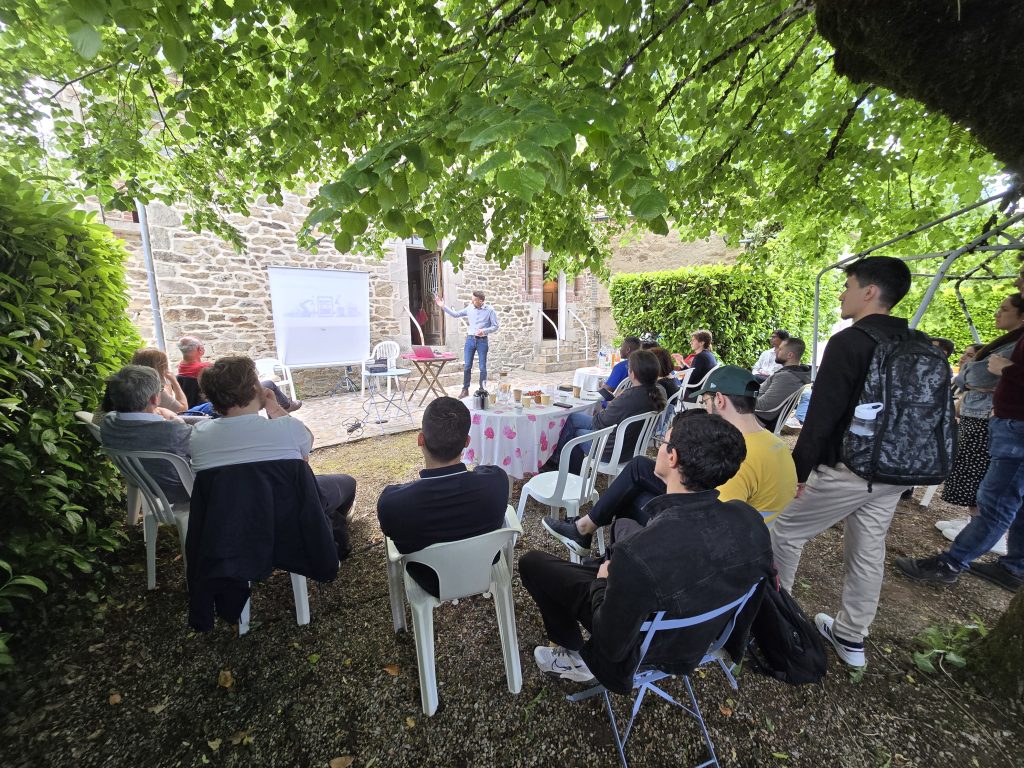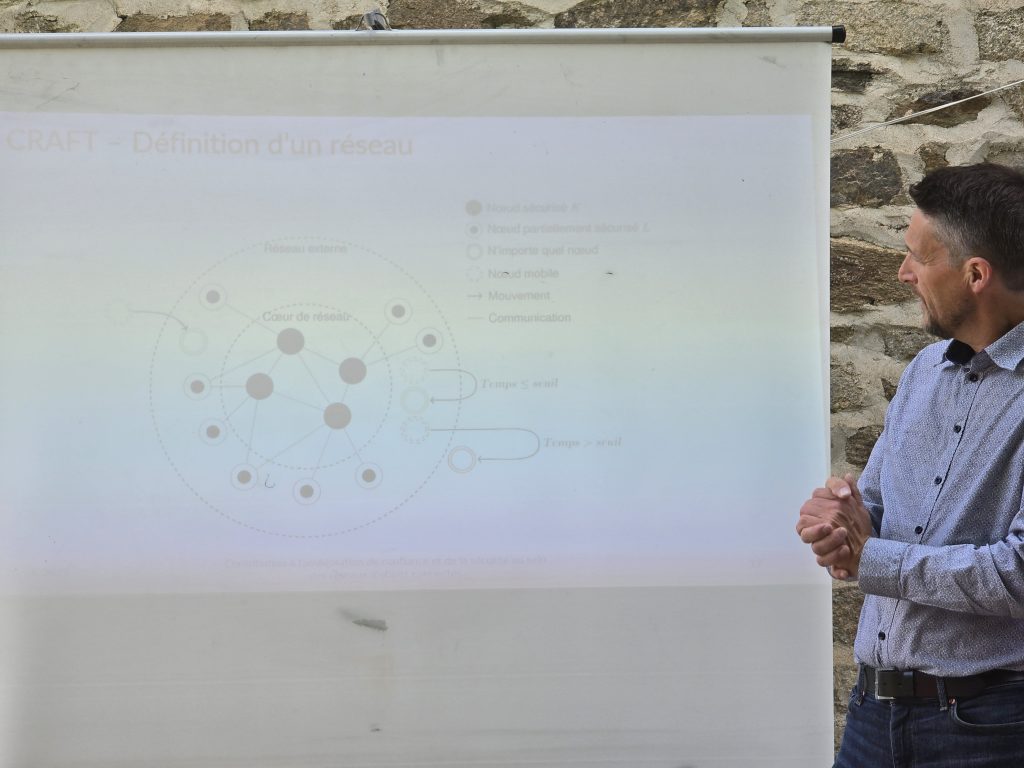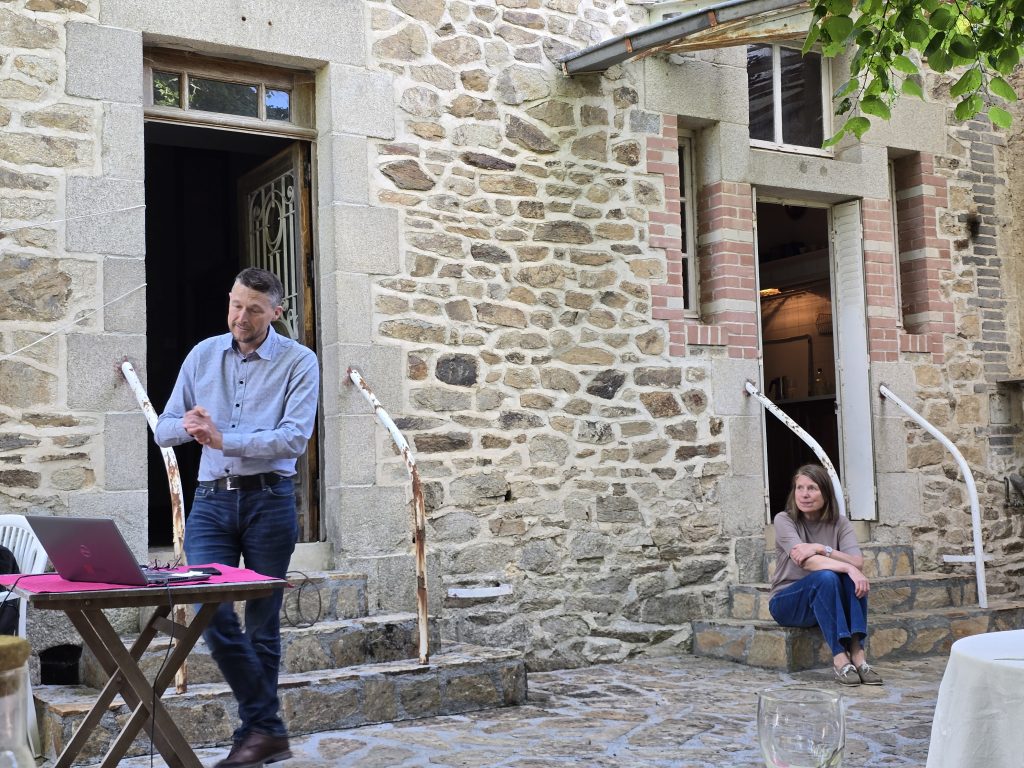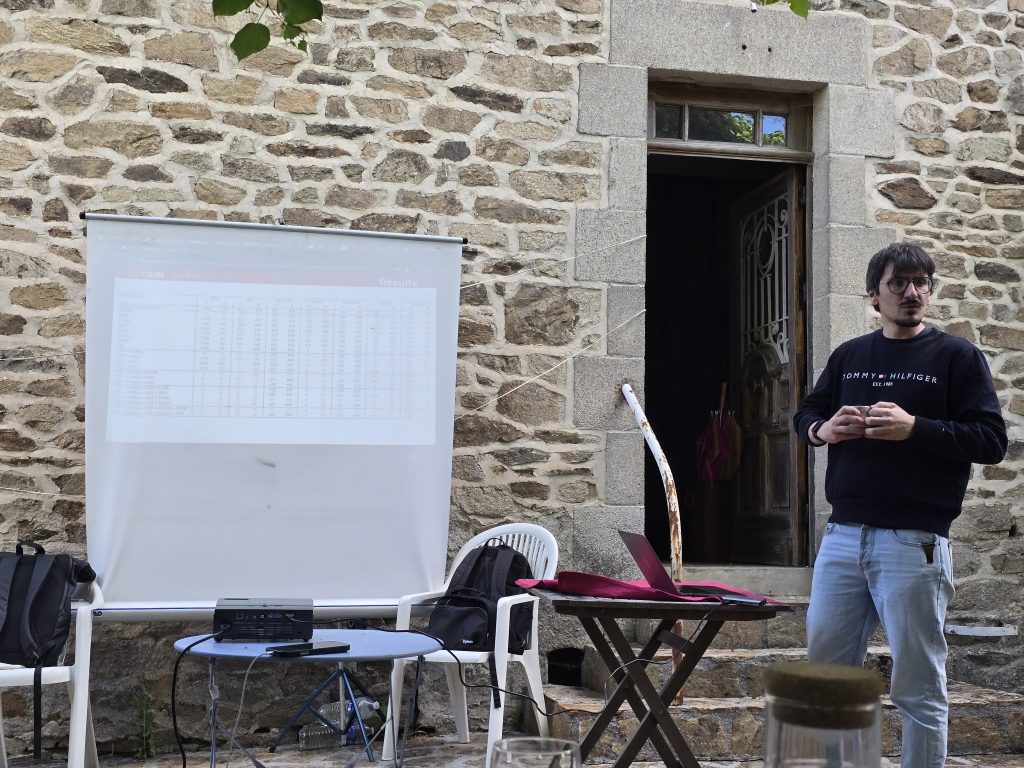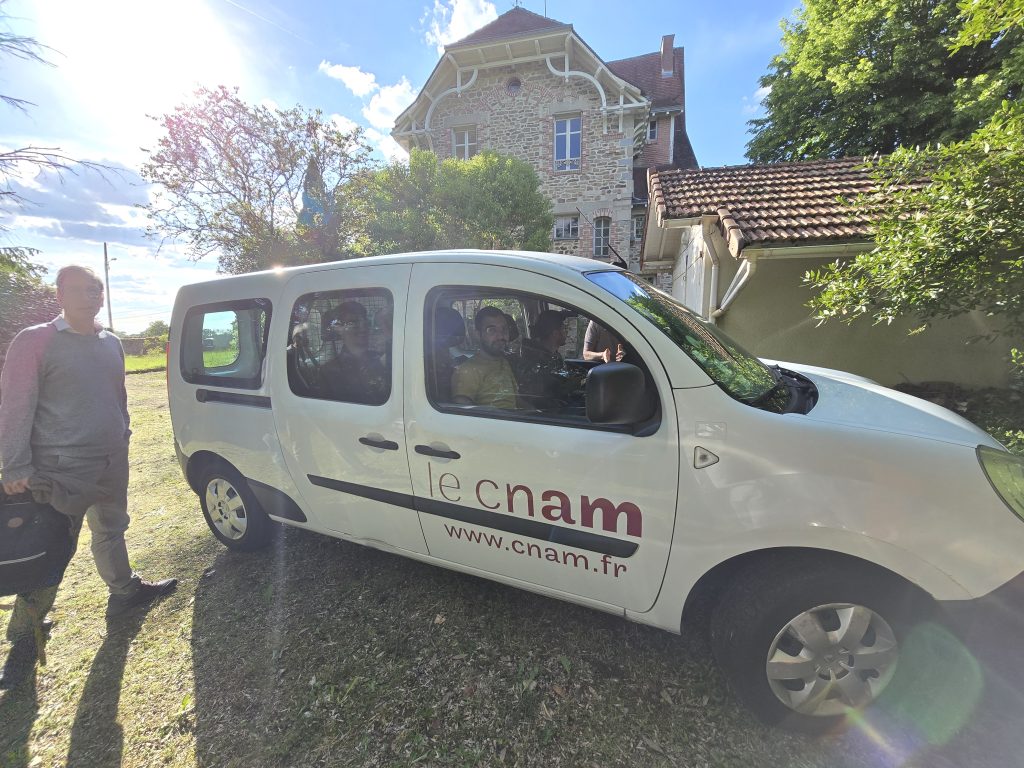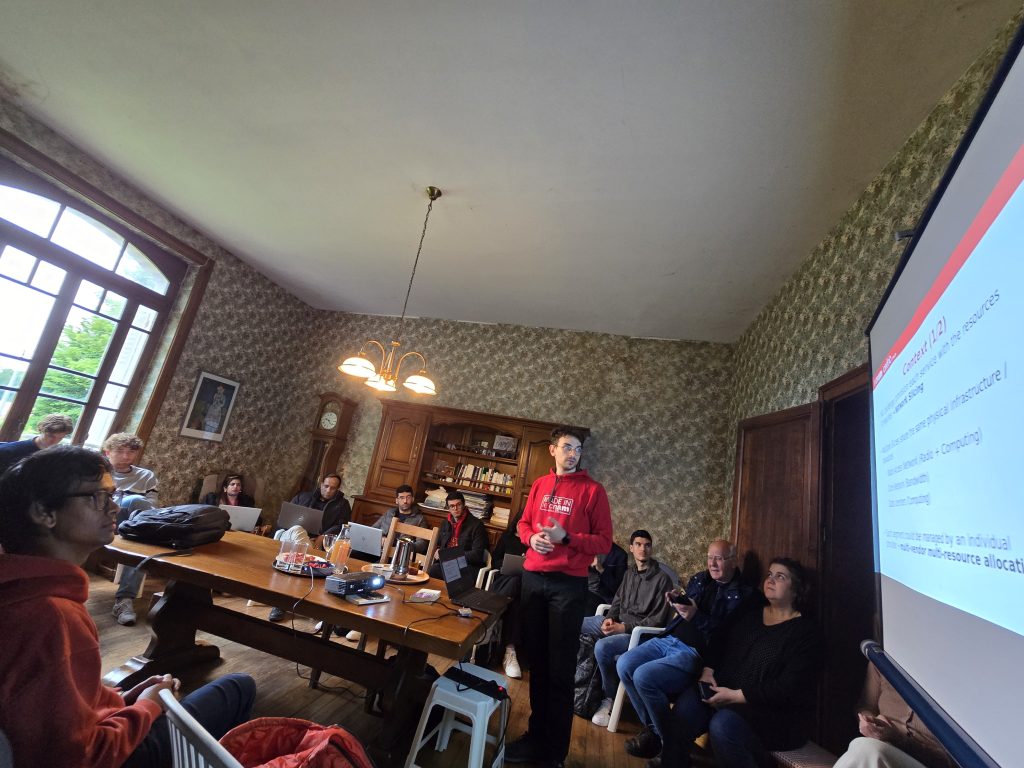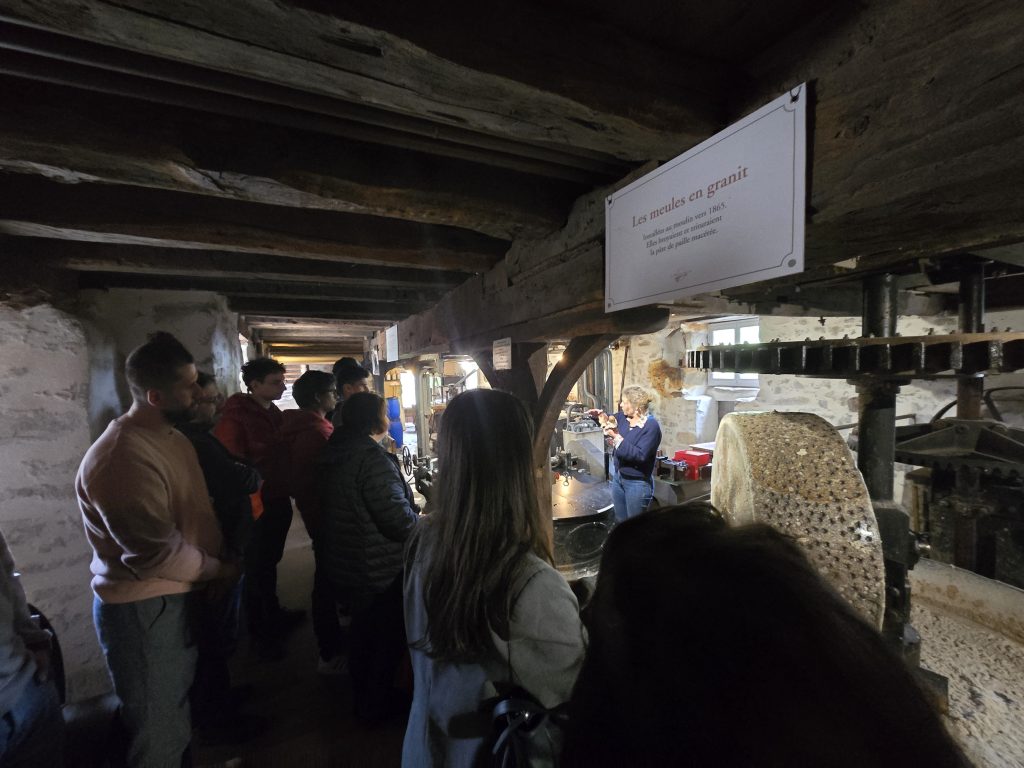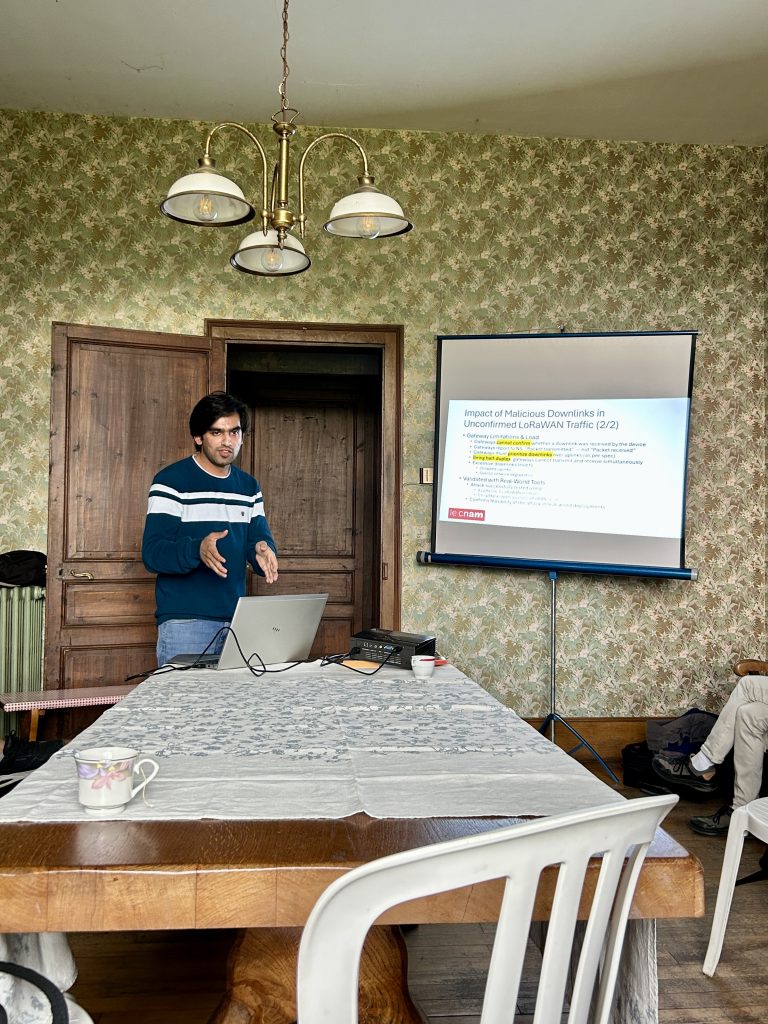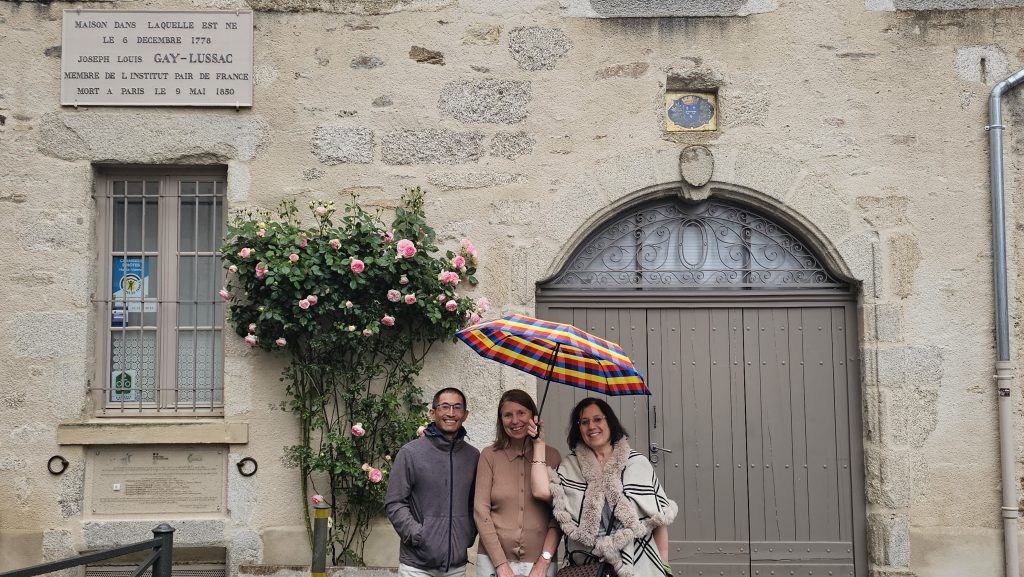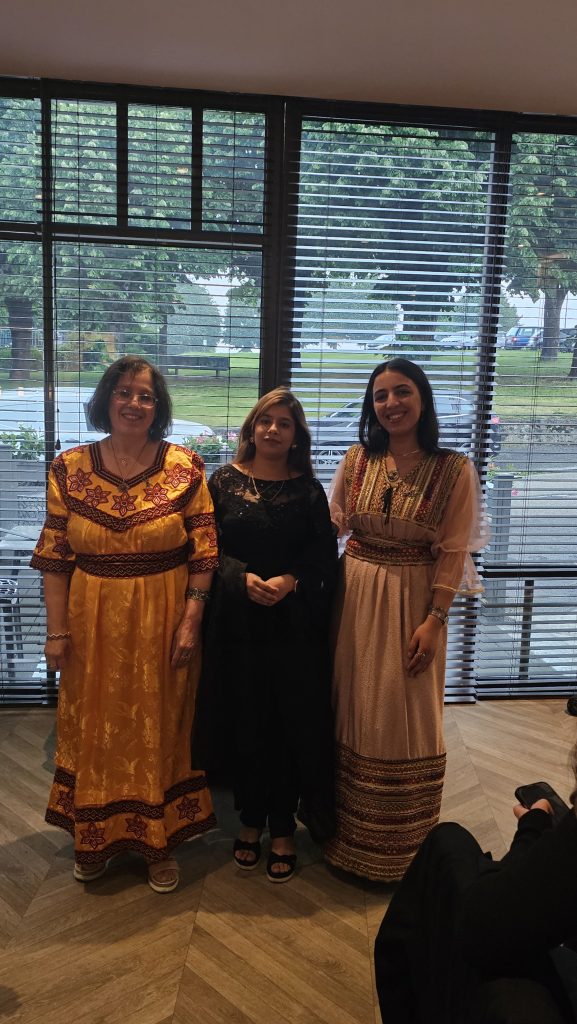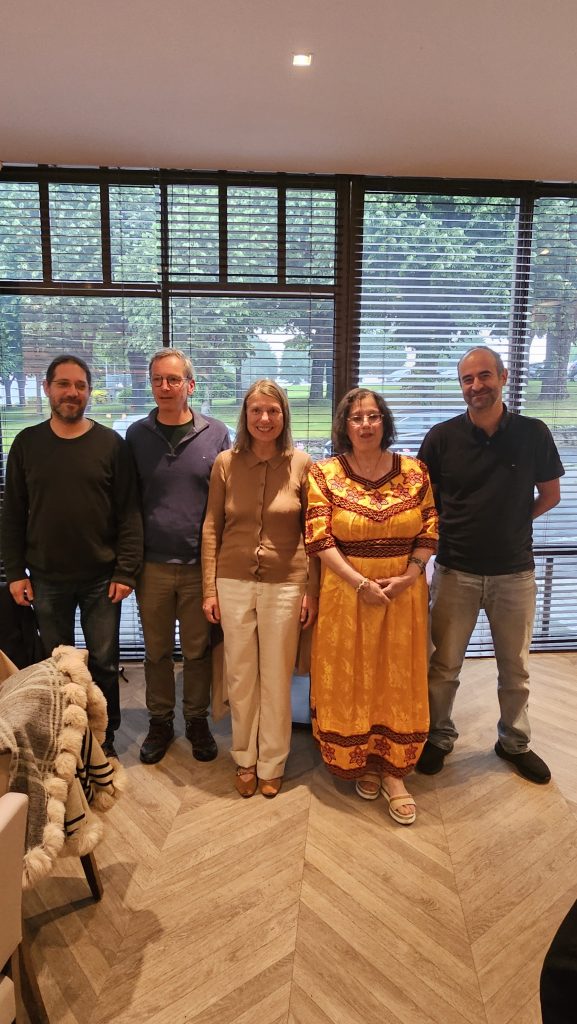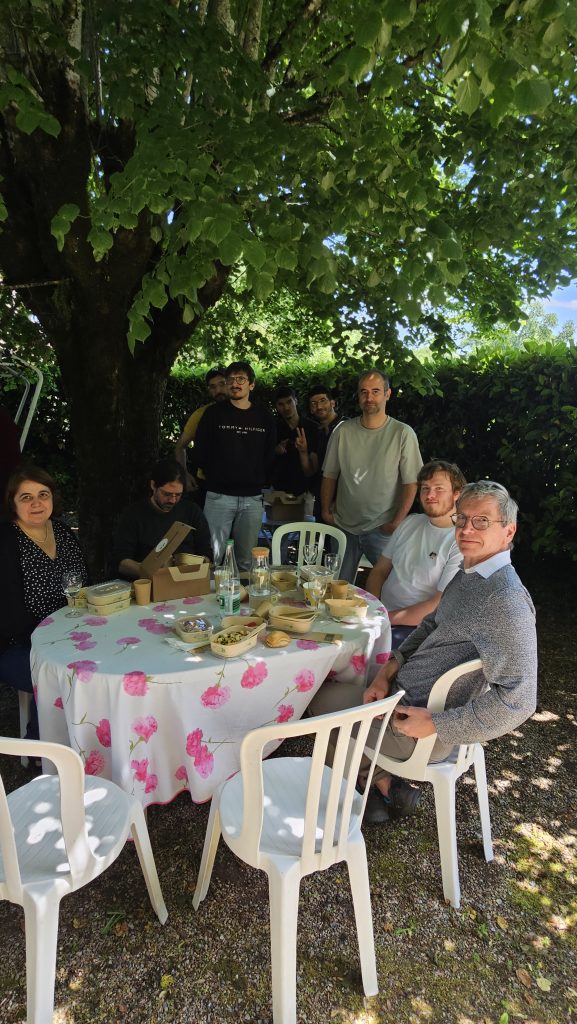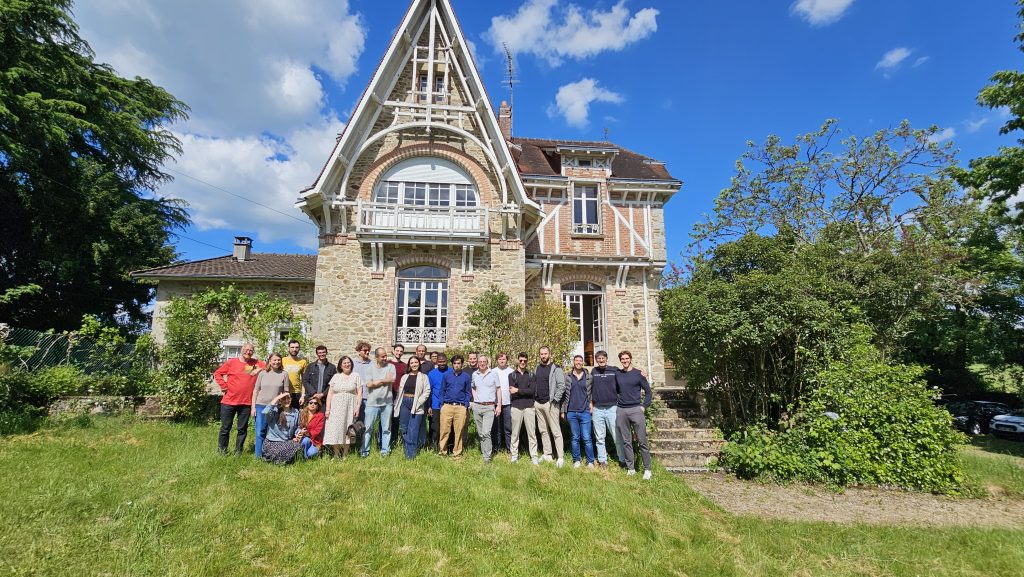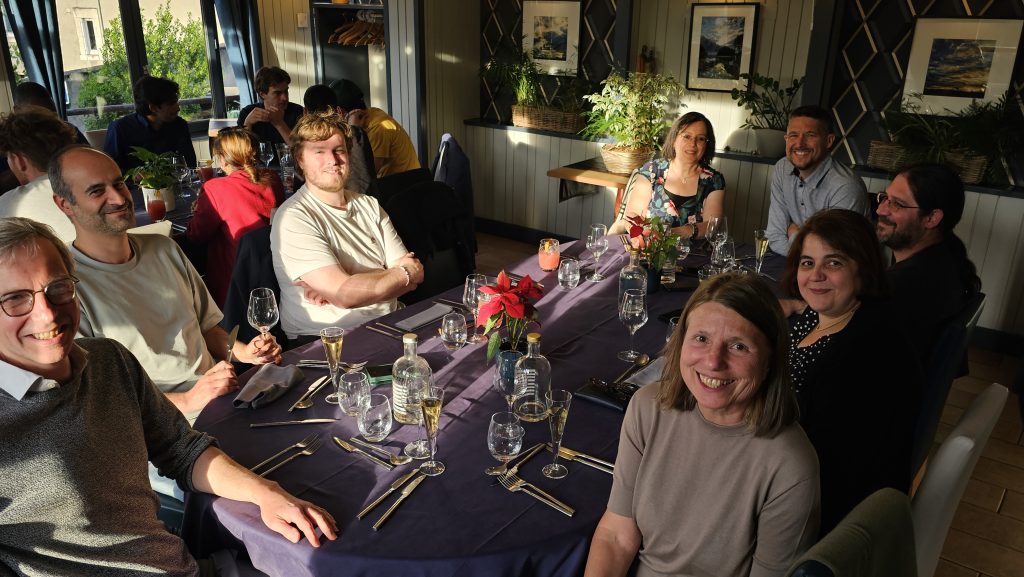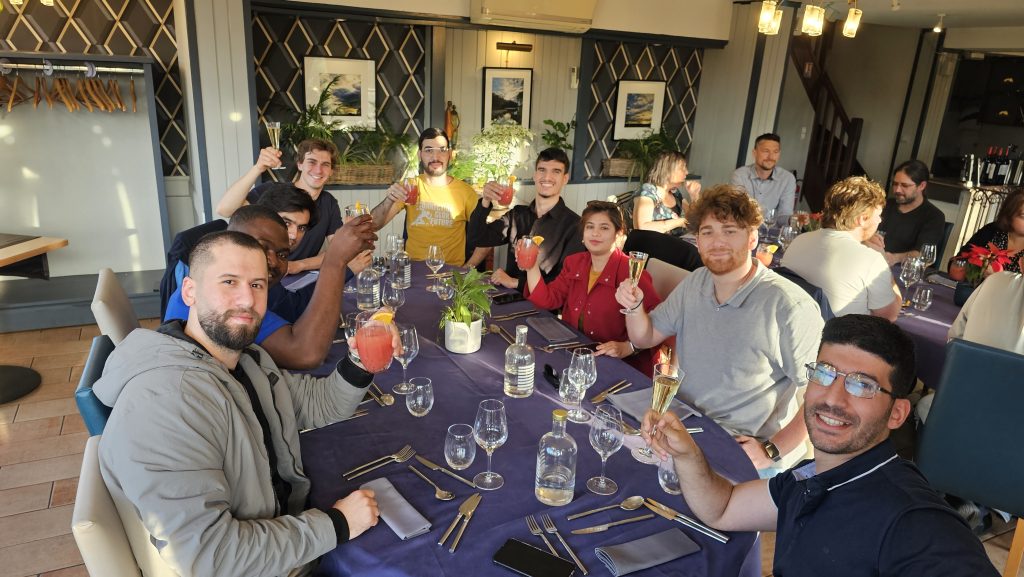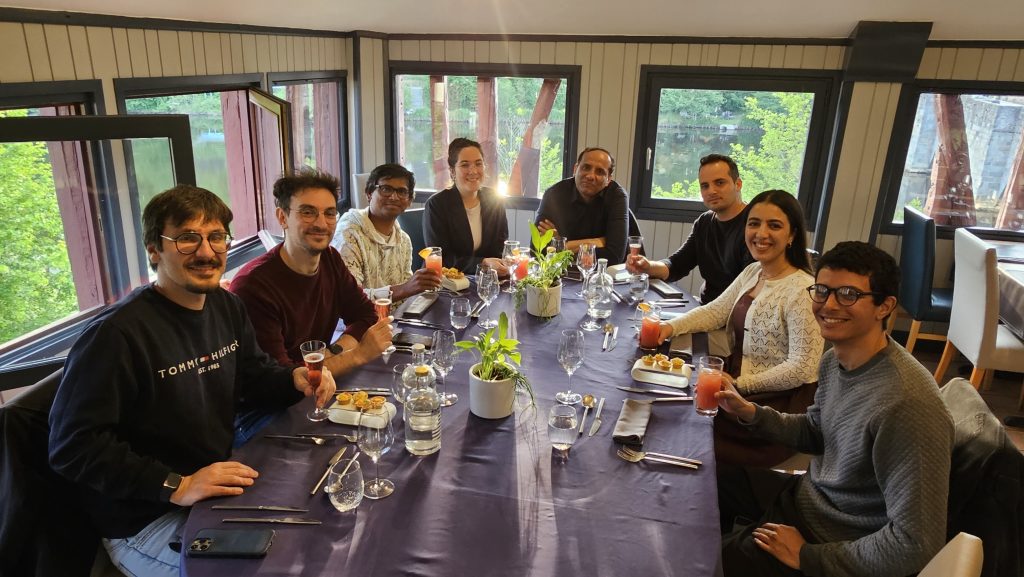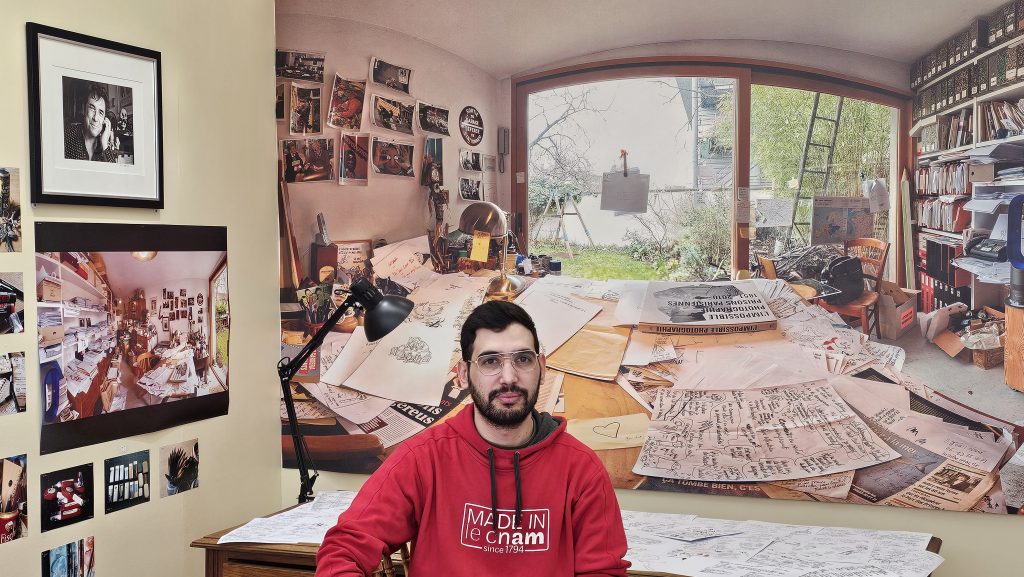The annual ROC Seminar will be held on May 20-22, 2025, in Saint-Just-le-Martel, in the close vicinity of Limoges, kindly hosted by Tatiana Aubonnet. See the location here.
Workshop program
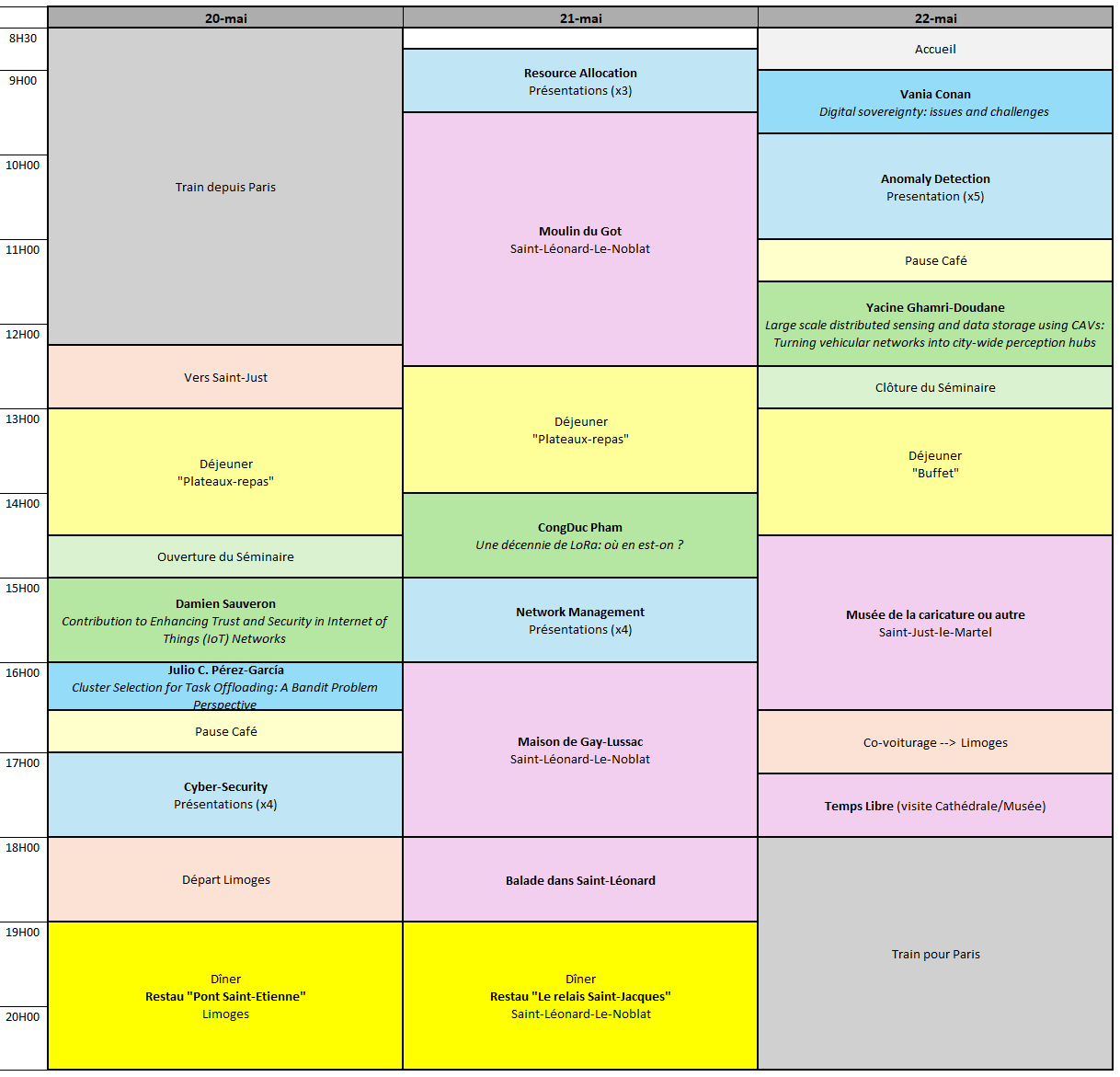
Mardi 20 mai
Invited Talk
Damien Sauveron, University of Limoges
Title: Contribution to Enhancing Trust and Security in Internet of Things (IoT) Networks
Abstract: After briefly introducing remote attestation protocols, we will present CRAFT, the first continuous remote attestation framework designed to enhance trust and security within networks of connected objects (IoT devices). This framework enables connected devices to use any existing remote attestation solution and adapt the protocol used based on the environment in which they operate. CRAFT relies on a set of messages designed to meet various functional and security requirements. It is based on a generic definition of a network of connected objects and has also undergone a security analysis to demonstrate its resilience to attacks targeting IoT networks. We will also present several simulations, carried out using the Omnet++ discrete event simulator, which highlight the framework’s strong performance.

Bio: Damien Sauveron has been a teacher-researcher at the University of Limoges since 2006. He is a full professor at the Faculty of Science and Technology in Limoges, where he currently serves as dean. He leads the CREATE team (CybeRsEcurity and Artificial inTElligence) within the XLIM laboratory. His research focuses on the security of embedded systems, connected objects (IoT), and mobile networks.
Julio C. Pérez-García , CNAM
title and abstract TBD

Bio: Julio C. Pérez-García completed his Bachelor of Engineering (B.E.) in Telecommunications and Electronics Engineering at the Universidad Central de Las Villas (UCLV) in Santa Clara, Cuba, in 2015. He got a Master of Science (M.Sc.) in Telematics from the same institution, graduating in 2019. In 2023, he received his Ph.D. from the University of Avignon in France, with a specialization in Internet of Things (IoT) security and blockchain technologies. His research interests include network optimization, the design of security protocols and privacy mechanisms for IoT systems, as well as next-generation mobile networks. Lab.
Session 1: Cyber-Security
- Jacopo Bufalino
- Supply chain security in the Cloud
- Ramzi Rezki
- Leveraging Graph Neural Networks for Intrusion Detection in IoT and Cyber-Physical Systems
- Flavien Dermigny
- Enhancing Security and Privacy in 5G Bubbles with Zero-Knowledge Proofs: A Comparative Analysis
- Billal Mokhtari
- Attack and Defense Strategies in Battery Cell Manufacturing ICS based on Knowledge Reasonning
Mercredi 21 Mai
Session 2: Resource Allocation
- Mario Patetta
- In-band dynamic bandwidth allocation for multi-operator RAN using an FPGA-based packet scheduler
- Sala Bin Ruba
- The impact of data poisoning on model performance in FL
- Rezak Aziz
- Federated Learning : Privacy and Verifiability
Invited Talk
CongDuc Pham, University of Pau
Title: A decade of LPWAN IoT: what’s ahead?
Abstract: LPWAN technologies targeting the Internet of Things (IoT) domain have been around for about a decade. They provide long-distance connectivity to battery-operated devices that were once difficult to connect with multi-hop approaches based on short communication technologies. Coupled with the availability of very powerful and affordable microcontrollers, new challenging applications in sensing, monitoring & surveillance applications that were before difficult to deploy can now be considered for out-of-the-box deployment. Among those technologies, LoRa from Semtech can be considered the leading LPWAN technology operating in the unlicensed bands outside of China. In this talk, we will first introduce selected LPWAN technologies and how they operate. We will then focus on LoRa and present the challenges that still exist in efficiently share the radio resource when deploying large scale LoRa networks, including non-terrestrial networks. In conclusion, we will try to give our vision of what’s ahead in the LPWAN ecosystem.

Bio: Dr Congduc Pham is Professor at University of Pau, France. His research interests focus on wireless & IoT systems and embedded AI applications for IoT. He published more than 140 scientific articles and gave more than 80 tutorials/keynotes. In H2020 WAZIUP and H2020 WAZIHUB, he was the scientific expert on Internet-of-Thing and LoRa technology. In H2020 HUBIQUITOUS he lead the deployment of SolutionLab for providing access to IoT/AI disruptive technologies in Africa. He coordinated the PRIMA INTEL-IRRIS project on smart irrigation with IoT and PRIMA RESILINK to increase smallholder’s resilience. Both projects develop digital platforms with cost-effective IoT/AI technologies to target the smallholder farmer communities. In PEPR AgriFutur he is leading the scientific activities to build sensing infrastructures to better qualify and quantify agroecological practices. More info on https://iotsensingsystem.live-website.com/ and https://cpham.perso.univ-pau.fr/.
Session 3: Network Management
- Moheed Ali Kayani
- LoRaWAN Security and Anomaly Detection
- Kaoutar Sadouki
- Intent-Driven Automata for Intent Structuring and Translation in Industry 4.0
- Thierry N’Kouka
- Traffic Prediction Improvement in 5G and beyond: AI and Self-Controlled Components
- Davide Avesani
- Network acceleration for generative AI
Jeudi 22 Mai
Vania Conan, CNAM
Title: Digital sovereignty: what impact on telecommunications infrastructures?
Abstract: Questions of digital sovereignty have received renewed attention in the current context, due to the increasingly influential role of the GAFAM companies and rising international tensions, particularly in Europe. Regulations have been implemented to protect European citizens’ personal data (GDPR), to regulate the development of AI algorithms (AI Act), and to structure the field of digital services (Digital Services Act). The aim of this presentation is to examine the role that sovereignty plays in the development of the underlying digital infrastructure—communication networks and data centers. We will review the evolution of the Internet, 6G, and cloud computing in order to identify connections between technological developments, scientific innovations, and issues of sovereignty.

Bio: Vania Conan is a professor at CNAM and holds the Chair of ‘Sovereign Digital Infrastructures’. He is a graduate of the École des Mines de Paris (Civil Engineer, 1990; PhD in Computer Science, 1996) and holds a Habilitation to Direct Research (HDR) from Sorbonne University (2012). Until 2024, he worked at Thales, where he conducted research in wireless communications (ad hoc networks, 5G/6G), software-defined networks, and secure infrastructures.
Session 4: Anomaly Detection
- Billel Hakem
- Data generation for predictive maintenance
- Maham Kayani
- Network anomaly detection using unsupervised and deep learning technique
- Yasmine Chaouche
- Anomaly Detection in Automated xG Networks Using Federated Learning with Non-IID Data
- Stefano Taborelli
- Non-Terrestrial Multi-Connectivity: An Overview of Future Challenges
- Ali Srour
- UAV-enabled 5G and Beyond: An Experimental Study
Invited Talk
Yacine Ghamri-Doudane, University of La Rochelle
Title: Large scale distributed sensing and data storage using CAVs: Turning vehicular networks into city-wide perception hubs
Abstract: The growth in the number of mobile devices today result in an increasing demand for large amount of rich content to support numerous applications. It is however challenging for the current cellular networks to deal with such increasing demand, both in terms of cost and bandwidth that are necessary to handle the “massive” content generated and consumed by mobile users in an urban environment. This is partly due to the connection-centric nature of current mobile systems. Alternatively, the technological advancement in modern vehicles allow us to harness their computing, caching and communication capabilities to supplement infrastructure network while enabling numerous location-based services towards city smartification. It is now imaginable to recruit connected and autonomous vehicles (CAVs) to collect, store and share heterogeneous data on urban streets in order to provide citizens with a various set of such services. In this talk, our aim is to present some of our past results and future research directions on how to efficiently collect and store contents by and within the vehicles themselves in the vicinity of the consumers, aka the urban mobile user, while reducing bandwidth demand and cost. Hence, we will briefly discuss the necessity to define novel centrality metrics, based on the social interest of urban users, to identify and select the appropriate set of best candidate vehicles to perform urban data sensing and collection in a distributed way. Then, we show how complex networks principles and game-theoretic approaches can be leveraged in order to realize a social-aware data storage system to perform collaborative content caching in an urban environment. Discussing how such solutions, necessitating no infrastructure support, could allow novel usages at smart city’s scale will conclude the talk.
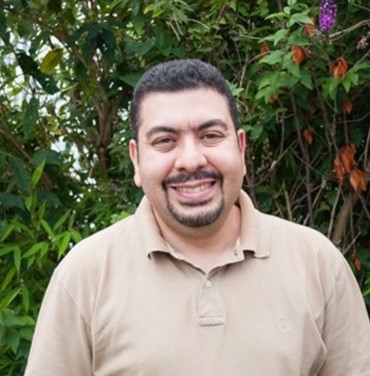
Bio: Yacine Ghamri-Doudane is currently Full Professor at the La Rochelle University in France, and the Director of its Laboratory of Informatics, Image and Interaction, L3i (~120 members + ~30 interns per year). Since January 2019, he also holds an Adjunct Professor position at the Walton Institute for Information and Communication Systems Science, South-East Technological University, SETU, Waterford, Ireland. Yacine received an engineering degree in computer science (M.Eng) from the National Institute of Informatics (INI), Algiers, Algeria, in 1998, an M.Sc. degree in signal, image and speech processing from the National Institute of Applied Sciences (INSA), Lyon, France, in 1999, a Ph.D. degree in computer networks from University Pierre & Marie Curie, Paris 6, France, in 2003, and a Habilitation to Supervise Research (HDR) in Computer Science from Université Paris-Est, in 2010. His current research interests lay in the area of wireless networking and mobile computing with a current emphasis on topics related to the Internet of Things (IoT), Connected and Autonomous Vehicles, Edge Computing Systems, 5G and Beyond as well as Digital Trust. Yacine holds three (3) international patents and he authored or co-authored eight (8) book chapters, about 50+ peer-reviewed international journal articles and about 180+ peer-reviewed full conference and workshop papers. Since 1999, he participated or still participates to several national and European-wide research projects in his area of interests. Among them five regional research projects (three ongoing), five national-wide research projects (two ongoing), fourteen European-wide or International-wide research projects (four on-going) as well as three EU COST Actions. He also held several industrial funding with companies like Orange, Nokia, Renault, OODrive, Soft@Home (Orange Group) and PANGA. As part of his professional activities linked to the computer networking research community, Yacine also acts as the Chair of the IEEE Smart Cities Technical Community 2.0 Meetings and Conferences Committee since May 2022. He was also part of the IEEE Smart Cities Initiative Steering Committee from 2014 to 2017 as well as since 2022. He acted as the Chair of the IEEE Communications Society (ComSoc) Technical Committee on Information Infrastructure & Networking (TCIIN – previously TCII) from January 2010 till December 2013 and also chaired the IEEE ComSoc Humanitarian Communications Technologies Ad hoc Committee (HCTC) from January 2012 till December 2015. He is Member-at-Large of the IEEE ComSoc Globecom/ICC Technical Content (GITC) Standing Committee for the 2023-2024 term. He is or had been an editorial board member of the IEEE TVT (ongoing), Elsevier JNCA, Elsevier ComNet, Springer AoT Journals, Wiley WCMC, Guest Editor of IEEE ComMag, IEEE IoT Journal, Springer/EURASIP WCN Journal, co-Editor in Chief of the Elsevier/KICS ICT Express Journal (ongoing) as well as the founding Editor-in-Chief of the IEEE ComSoc Ad Hoc and Sensor Network Technical Committee (AHSN TC) Newsletter. Among other conference involvements, he acted or is still currently acting as the TPC Chair of IEEE LatinCom 2022, IEEE MeditCom 2021, IEEE/IFIP IM 2021, and IEEE CCNC 2015, Symposium co-Chair in IEEE ICC 2009, 2010, 2012, 2018 and 2021 as well as IEEE GLOBECOM 2012 and 2015, Workshop co-Chair for IEEE GLOBECOM 2023, IEEE CloudNet 2024 and IEEE NOMS 2025, as well as Track co-Chair in IEEE CCNC 2023 and 2024 and in IEEE Sensors 2022 and 2023. He is a Senior Member of the IEEE. (CV & Bio: http://goo.gl/6wnUvJ)
